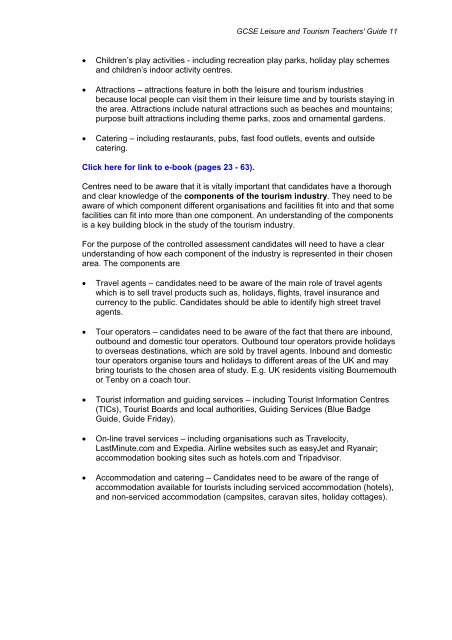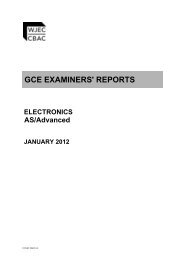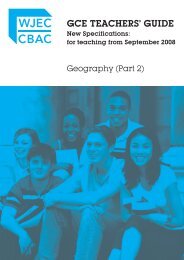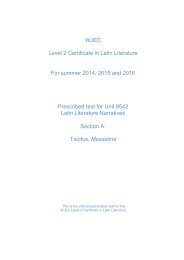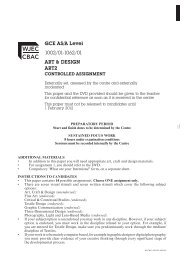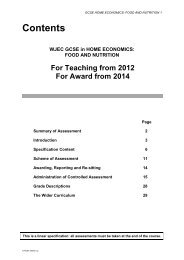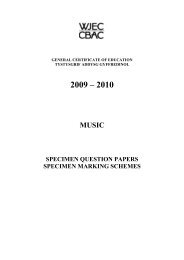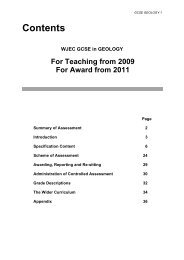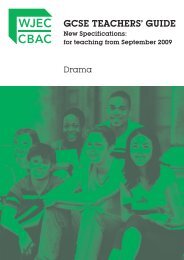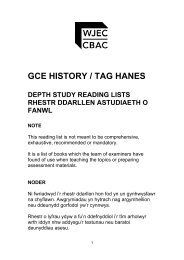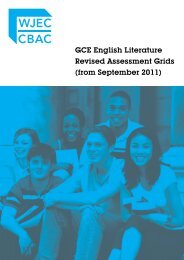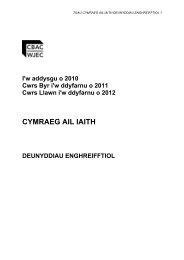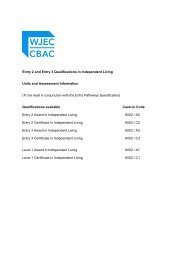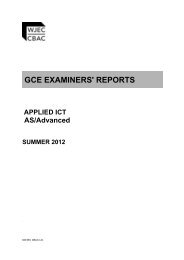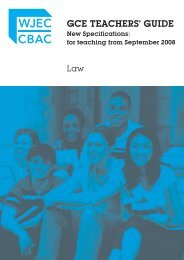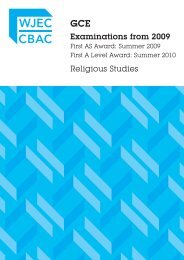Leisure & Tourism Teachers Guide - WJEC
Leisure & Tourism Teachers Guide - WJEC
Leisure & Tourism Teachers Guide - WJEC
Create successful ePaper yourself
Turn your PDF publications into a flip-book with our unique Google optimized e-Paper software.
GCSE <strong>Leisure</strong> and <strong>Tourism</strong> <strong>Teachers</strong>' <strong>Guide</strong> 11<br />
• Children’s play activities - including recreation play parks, holiday play schemes<br />
and children’s indoor activity centres.<br />
• Attractions – attractions feature in both the leisure and tourism industries<br />
because local people can visit them in their leisure time and by tourists staying in<br />
the area. Attractions include natural attractions such as beaches and mountains;<br />
purpose built attractions including theme parks, zoos and ornamental gardens.<br />
• Catering – including restaurants, pubs, fast food outlets, events and outside<br />
catering.<br />
Click here for link to e-book (pages 23 - 63).<br />
Centres need to be aware that it is vitally important that candidates have a thorough<br />
and clear knowledge of the components of the tourism industry. They need to be<br />
aware of which component different organisations and facilities fit into and that some<br />
facilities can fit into more than one component. An understanding of the components<br />
is a key building block in the study of the tourism industry.<br />
For the purpose of the controlled assessment candidates will need to have a clear<br />
understanding of how each component of the industry is represented in their chosen<br />
area. The components are<br />
• Travel agents – candidates need to be aware of the main role of travel agents<br />
which is to sell travel products such as, holidays, flights, travel insurance and<br />
currency to the public. Candidates should be able to identify high street travel<br />
agents.<br />
• Tour operators – candidates need to be aware of the fact that there are inbound,<br />
outbound and domestic tour operators. Outbound tour operators provide holidays<br />
to overseas destinations, which are sold by travel agents. Inbound and domestic<br />
tour operators organise tours and holidays to different areas of the UK and may<br />
bring tourists to the chosen area of study. E.g. UK residents visiting Bournemouth<br />
or Tenby on a coach tour.<br />
• Tourist information and guiding services – including Tourist Information Centres<br />
(TICs), Tourist Boards and local authorities, Guiding Services (Blue Badge<br />
<strong>Guide</strong>, <strong>Guide</strong> Friday).<br />
• On-line travel services – including organisations such as Travelocity,<br />
LastMinute.com and Expedia. Airline websites such as easyJet and Ryanair;<br />
accommodation booking sites such as hotels.com and Tripadvisor.<br />
• Accommodation and catering – Candidates need to be aware of the range of<br />
accommodation available for tourists including serviced accommodation (hotels),<br />
and non-serviced accommodation (campsites, caravan sites, holiday cottages).


